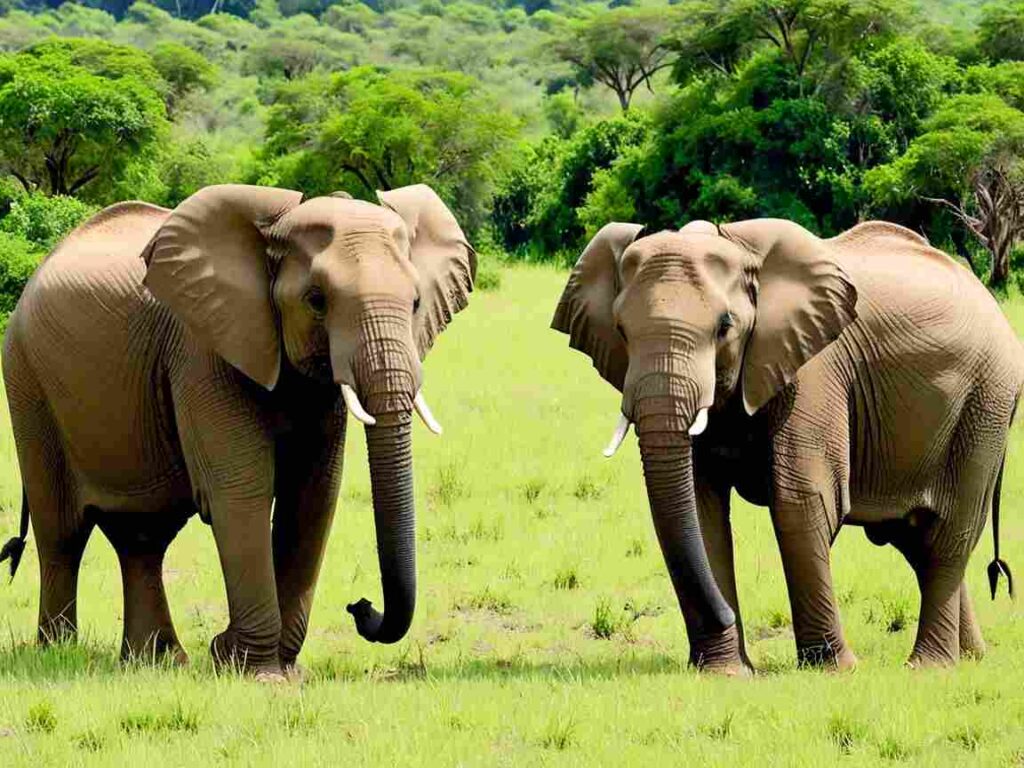Elephant Gps Trackers: Protecting The Giants Of The Earth!

Elephants are one of the largest animals on land, and they play an important role in their environments. However, they face many dangers, such as habitat loss, poaching, and conflicts with humans. As human activities continue to affect their natural homes, elephant populations are at risk. To protect these incredible animals, technology like GPS trackers is being used to monitor their movements and behavior.
In this article, we’ll discuss how GPS trackers are used in elephant conservation, focusing on systems like ElephanTTrackinG and technologies like LoRaWAN.
Why Elephant Conservation is Important?
Elephants are crucial to the health of the environment. They help maintain ecosystems by feeding on certain plants, which helps other plants and animals thrive. For example, elephants keep grasslands healthy by preventing trees from overtaking the land. They also spread seeds across large distances, helping to grow forests and maintain plant diversity.
Sadly, elephants are facing serious challenges. Both African and Asian elephants are considered endangered due to poaching for their ivory, habitat destruction, and conflicts with humans. Elephants sometimes wander into villages and farmlands, which can lead to dangerous situations for both the elephants and people living there.
As elephant numbers decrease, it becomes even more important to protect them. GPS tracking is one of the best ways to do that.
Also Read:Adrianna Apostolec – Raising Talent in the Creative World!
GPS Trackers: A Useful Tool in Elephant Protection
GPS trackers are small devices that attach to elephants and help scientists track their movements and behavior. The devices give real-time information about where the elephant is, how fast it’s moving, and which direction it’s going. Conservationists and researchers can access this data remotely, allowing them to learn more about the elephants and respond quickly to any problems.
The main benefit of GPS trackers is that they allow researchers to collect detailed information about elephants. By tracking where elephants go, researchers can figure out their migration patterns, where they live, and where they are likely to have dangerous interactions with humans.
This helps them make plans to protect the elephants, such as creating safe areas where they can live without being disturbed. GPS trackers can also help identify if an elephant is sick or injured, so that help can be provided as soon as possible.
ElephanTTrackinG: A Key GPS Tracking System for Elephants
One of the best-known GPS tracking systems for elephants is ElephanTTrackinG. This system was created in India and is designed specifically for tracking elephants. The system helps conservationists track elephants across large areas, even in forests and remote places. By using this technology, scientists can learn more about how elephants move and behave.
ElephanTTrackinG has been very helpful in understanding where elephants live and how they travel. The data it collects shows which areas are important for elephants and where they are likely to have conflicts with humans. If an elephant is approaching a village or farmland, conservationists can use the tracking information to warn local people and guide the elephant safely away from danger.
LoRaWAN: A New Technology for Tracking Elephants
Another important technology that’s being used to track elephants is LoRaWAN (Long Range Wide Area Network). LoRaWAN is a type of communication system that works over long distances and uses very little power. This makes it perfect for tracking elephants in areas that are far from cities or where there’s no internet.
Organizations like WWF (World Wide Fund for Nature) have started using LoRaWAN-powered GPS trackers to monitor elephants in remote areas. This technology allows scientists to track elephants even in places where traditional communication networks don’t work. LoRaWAN trackers can send data over long distances without using much energy, so the trackers last longer and don’t need to be recharged often.
How GPS Trackers Help Prevent Poaching
Poaching, or illegal hunting, is one of the biggest threats to elephants, especially in Africa. Poachers kill elephants for their tusks, which are valuable on the black market. GPS trackers help prevent poaching by allowing authorities to monitor elephants’ movements in real time.
If an elephant is moving into an area known for poaching, the GPS system can send an alert. This gives anti-poaching teams a chance to respond quickly and protect the elephant. Sometimes, GPS trackers can also be used to track the movements of poachers themselves, helping authorities stop them before they harm any elephants.
Working with Local Communities to Protect Elephants
One of the key parts of elephant conservation is getting local communities involved. Elephants and people often live in close proximity, especially in rural areas near national parks. However, when elephants wander into human settlements, they can damage crops and cause accidents. GPS trackers help prevent these conflicts by letting conservationists know when elephants are nearby.
With real-time tracking, conservationists can warn local communities about elephants approaching their farms or villages. In some cases, local people help guide the elephants away from dangerous areas. GPS tracking also encourages cooperation between conservationists and local communities, as both groups work together to protect the elephants.
The Future of GPS Tracking for Elephants
The use of GPS trackers for elephant conservation is growing, and the technology is improving every day. As more advanced tools like artificial intelligence and drones are added to tracking efforts, conservationists will be able to learn even more about elephants and find better ways to protect them.
By using GPS trackers, conservationists can gather valuable information about elephant behavior, reduce the risk of poaching, and protect elephants from human-wildlife conflicts. This technology is helping to ensure that elephants continue to roam the Earth for generations to come.
FAQs:
What is an elephant tracker?
An elephant tracker is a GPS device placed on an elephant to keep track of where it goes and what it does. This helps researchers protect elephants and understand their movements.
How long do elephant trackers last?
Elephant trackers usually last between 1 and 5 years. Some newer trackers, like those using LoRaWAN, can last longer with less need for maintenance.
How is GPS used to track animals?
GPS trackers are attached to animals and send location data to researchers. This helps them see where the animals go and learn about their habits.
Do GPS trackers really work?
Yes, GPS trackers work well to track animals. They give accurate location information, which helps researchers protect the animals and study their behavior.
Conclusion:
GPS trackers are essential tools for elephant conservation, providing valuable insights into their movements and behavior. These trackers help protect elephants from threats like poaching and human-wildlife conflict. With ongoing advancements in technology, GPS tracking will continue to play a key role in safeguarding these incredible animals for future generations.
Also Read:







